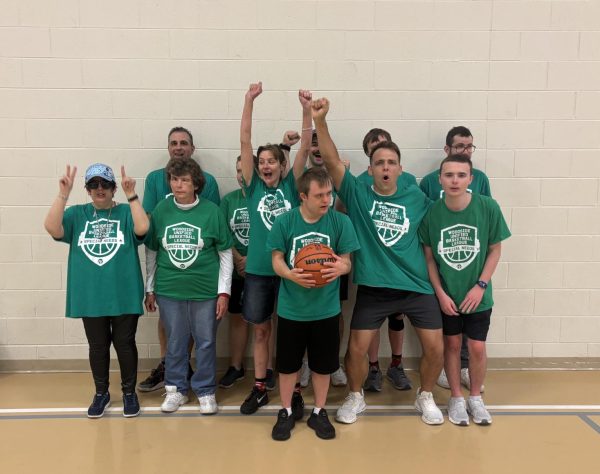November being used to promote compassion for those with chronic conditions
November is National Epilepsy Awareness Month, sparking campus conversation on tolerance and compassion for those with chronic conditions.
Midterms are over, the last leaves are hanging onto tree branches, and thoughts of turkey dinners and the upcoming holiday season are at the forefront of most minds.
But as Oakland University students excitedly think ahead to the times of holiday cheer that await them, Graham Health Center encourages the campus community to take a pause during the month of November.
The Center for Disease Control has deemed November to be National Epilepsy Awareness month, hoping to spur conversation across the country about this common and misunderstood condition.
“One in 100 people are epileptic in America,” said Graham Health Center registered nurse Samantha Damren. “That’s one percent [of the country].”
At the age of 10, Damren’s close friend fell into an epileptic seizure while the girls were at summer camp.
“Epilepsy ran in her family,” Damren said, explaining that epilepsy is not a condition that could ever spread from one person to another, but is largely due to family history and predisposition.
“She was shaking … like what you’d see in the movies,” Damren said. “She had a tonic-clonic seizure.”
Damren explained that muscle stiffening, intense shaking, an episode of incontinence and possibly airway blockage and saliva expulsion most often categorize a tonic-clonic seizure.
“[Epilepsy] is frustrating,” Damren said. “In most cases, the epileptic can’t drive, and in an area like Metro Detroit, people need cars to get around. Their livelihoods depend on it. [Epilepsy] can jeopardize one’s ability to make a living, and I’m very sympathetic to that.”
Although it’s one thing to understand that individuals on campus may be living with and managing a condition like epilepsy on a daily basis, it is another thing entirely to be an educated community member and know what to do if someone with epilepsy presents with a seizure.
In the spirit of National Epilepsy Awareness month, Damren provided crucial information to every OU student and staff member, so that they may be better equipped to handle an epileptic emergency.
Damren said that the first thing one should do when caring for someone with epilepsy who has just had an episode is to call 911.
“A seizure is always abnormal, and you always need to call [emergency personnel],” she said.
Second, Damren stressed that nothing should be placed into the patient’s mouth. Contrary to scenes in movies and television, Damren warned that placing something in the mouth of someone who is actively seizing can further block the airway and will more than likely cause additional damage.
Lastly, Damren said that someone having a seizure, or just having come out of one, should not be moved. But those on the scene should do what they can to minimize damage to the head, neck and spine.
Damren suggested that a soft object like a blanket or coat be placed under the patient’s head in order to keep them comfortable and reduce movement of the head and neck.
Additionally, Damren explained that when someone has a seizure, they lose control of all of their muscles, resulting most times in an episode of incontinence.
“This can be extremely embarrassing for patients,” Damren said, suggesting that anyone caring for someone who has just had a seizure be cognizant of this.
Damren suggested putting a jacket or any similar object over the patient, to aid in maintaining the patient’s dignity once they come-to and realize what has happened.
“People with epilepsy are not fragile,” she said.
She said that the vast majority of those with the condition are actively managing it with medication, which commonly produces side-effects of extreme tiredness or fatigue, often resulting in peers believing that something is “wrong” with those who are epileptic.
Damren said that those with epilepsy are just as intelligent and capable as those without and should never be excluded from activities due to their condition.
As it is important to acknowledge a condition like epilepsy along with what can be done to help someone with the condition during a medical emergency, it is crucial to be aware of any and all medical conditions that could affect members of the OU community.
“Awareness of various conditions is crucial for community education,” said Andrea Shea, a graduate nursing student at OU. “[It] builds understanding and reduces perceptions that may be negative.”






